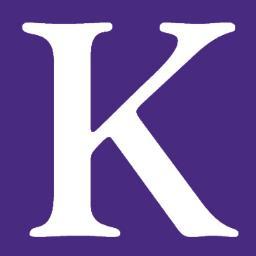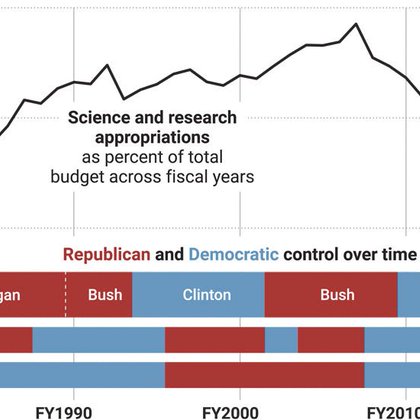
Dashun Wang
@dashunwang
Followers
6K
Following
3K
Media
152
Statuses
3K
Kellogg Chair of Technology at Kellogg, Founding director, Center for Science of Science and Innovation, Northwestern University
Evanston, IL
Joined September 2008
🔥Download the Science of Science book for FREE🔥 We're VERY excited to make the whole book freely available: https://t.co/F63RwwBxEj Please help us RT & let everyone know of this resource! #ScienceOfScience
13
311
688
How it started/How it's going. The Infinite Alphabet is out today, globally on Kindle and across bookstores in the UK. If you are curious about the history of learning curves, disruptive innovation, knowledge diffusion, and economic complexity, this book is for you. If you
20
42
302
Wow, Atlas does seem like a game-changer. my first reaction is to give it access to everything so it's maximally useful for me. then I'm curious what happens when it has all my bank logins with Agent mode. Has anyone tried it?
0
0
5
Job opening - Please help us spread the word to the right physicists! ****** Physics RA opening at Kellogg ****** We are seeking a motivated research assistant to work on problems at the interface of nonequilibrium statistical physics and the social sciences. The project
2
16
24
Machines aren’t just tools — they’re co-creators of discovery. In Nature, Kellogg Professor Dashun Wang says our highest honors, like the Nobel — should reflect that human–machine partnership. Read more: https://t.co/HozAe39s3p
#KelloggLeader #AI #Innovation #Research
7
3
7
In this Nobel week, I outline in @Nature a new vision for how science recognizes discovery: It is time to recognize human-machine partnership in science. Scientific prizes are increasingly influential in conferring status and shaping the direction of science. Yet in an era when
2
9
40
I am looking for 𝗺𝘂𝗹𝘁𝗶𝗽𝗹𝗲 𝗳𝘂𝗹𝗹𝘆-𝗳𝘂𝗻𝗱𝗲𝗱 𝗣𝗵𝗗 𝘀𝘁𝘂𝗱𝗲𝗻𝘁𝘀 (𝗦𝗽𝗿𝗶𝗻𝗴/𝗙𝗮𝗹𝗹 𝟮𝟬𝟮𝟲) and 𝘃𝗶𝘀𝗶𝘁𝗶𝗻𝗴 𝘀𝘁𝘂𝗱𝗲𝗻𝘁𝘀/𝗶𝗻𝘁𝗲𝗿𝗻𝘀 to join my group at the Department of Computer Science, Florida State University (FSU)!
2
5
11
Timely and beautiful work by a fantastic team! And super clever! What-if analysis using priority scores of grants to see what happens to society if NIH funding were cut. Check it out!
Earlier this year, the President’s budget proposed a 40% cut to the NIH budget. This sparked an obvious research question: What if the NIH had been 40% smaller in previous years? Here’s what Pierre Azoulay, Danielle Li, Bhaven Sampat, and I found when we looked at grants that
1
3
11
Earlier this year, the President’s budget proposed a 40% cut to the NIH budget. This sparked an obvious research question: What if the NIH had been 40% smaller in previous years? Here’s what Pierre Azoulay, Danielle Li, Bhaven Sampat, and I found when we looked at grants that
12
132
443
"Tenure, it seems, is more than a professional milestone—it appears to mark an inflection point that influences how scientists contribute to scientific advancement.” – Prof. @dashunwang, the impact of tenure status on scientific research. #KelloggLeader
insight.kellogg.northwestern.edu
A large study finds that there’s a trade-off. While tenured researchers may publish less, they often come up with more novel ideas.
1
3
4
Also see coverage from @TIME Magazine: https://t.co/TFx22a6i65
@KelloggInsight: https://t.co/PDR9F2DV4h Northwestern Now: https://t.co/xOq5fCTcNS 10/10
news.northwestern.edu
Republican presidents and House majorities between 1980-2020 spent more on science, according to analysis
3
4
55
Huge thanks to my co-authors Zander Furnas, Nic Fishman, and Leah Rosenstiel. We hope this sparks important conversations at the intersection of science & politics. Check out the paper here: https://t.co/elABKDBhOo 9/
science.org
Republican lawmakers consistently provided robust federal funding, often exceeding Democrats
5
3
65
Appropriations are the “dark matter” of science funding: massive but understudied. The data provide a powerful tool for policy-makers, researchers, and advocates to monitor and evaluate the influence of political control on science funding, opening up new opportunities. 8/
1
3
65
Overall, these findings challenge conventional narratives, reveal a more nuanced picture of science funding, and highlight the importance of bipartisan support for science. Ultimately, science requires long-term, stable investments. And the US government, the largest funder in
2
5
91
Lastly, while appropriations shift with partisan control, grantmaking at the field level remains remarkably stable, suggesting internal processes such as peer review and advisory panels appear to buffer science from political swings. 6/
1
1
78
Key Finding 3: Institutions Matter These partisan differences show up especially in the House and the presidency. By contrast, we find no consistent differences in the Senate. 5/
1
2
87
Importantly, this support was not just defense. Republicans tended to fund NIH, NSF, and CDC more generously as well. 4/
5
12
124
First, while the narrative has long been that Democrats are the “pro-science” party, the data tell a more complex story. Historically, Republicans-- especially in the House and presidency-- appropriated more funding for science and research than Democrats. 3/
3
11
136
We leverage a unique & comprehensive database that categorizes discretionary base budget authority for federal science and research accounts, tracing 171 specific federal appropriations accounts across 27 federal agencies in a 40 y span. We uncover four key findings. 2/
2
4
99
🚨 Our latest paper just came out in Science, where we report a simple, historical pattern: From 1980 to 2020, Republican lawmakers consistently funded science at a higher level than their Democratic counterparts. four years in the making. Led by @zfurnas thread 1/n
34
295
2K






